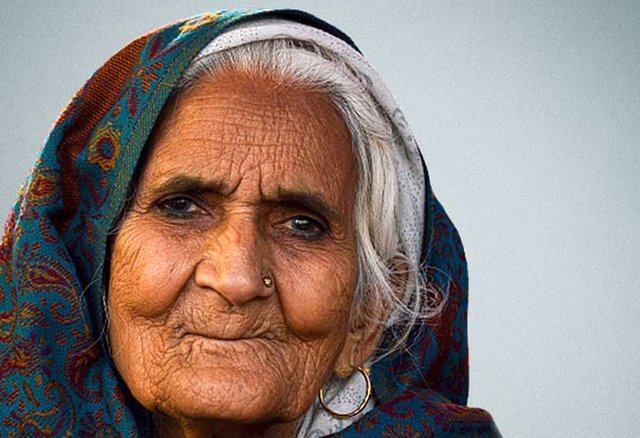The story of the Indian Muslim woman, who was chosen on the list of the most influential personalities in the world, is 82 years old and full of challenge
With the spread of protests in India following the passage of the racial nationality law that detracts from Muslims, the 82-year-old grandmother Belkis, with her defiant eyes and rosary in her hand, has become the face of resistance to the new law.
Belqis endured the coldest winter in New Delhi in more than a century, sitting for more than 3 months in the front rows in a protest led by Muslim women. Her resilience earned her a spot on Time magazine's 2020 list of the world's 100 most influential people.
The magazine said that Belkis has become a "voice of the marginalized" and a "symbol of resistance" in a country where the voices of women and minorities are systematically suppressed by the majority policies of the Modi regime. Belqis appears in the classification of icons in the magazine.

Belqis and the Racial Law: Belqis was known to be one of the grandmothers of the Muslim Shaheen Bagh neighborhood in which women cut a major street after Modi's nationalist Hindu government passed a law that his critics described as a discriminatory law, because it excludes Muslims from the six religious groups that represent persecuted minorities in 3 neighboring countries that can obtain On the nationality.
With her slightly curved stoop and wrapped in a shawl, she arrives every morning and sits until late at night to listen carefully to the women reading the preamble to the constitution, making sermons and singing patriotic songs to affirm their citizenship.
Religious discrimination in a secular country: Belkis spoke about what attracted her daily to the protests, and that is her concern that the new citizenship law will set the stage for a citizen record that could put some Indian Muslims at risk by demanding that they provide proof of citizenship. The Modi government says these concerns are misplaced, and denies that the law contains any kind of discrimination.
The reassurance did little to assuage the fears of women, including Belqis, who said that she was determined to fight religious discrimination in the secular country. "We will not accept this law. This is a free country and we want it to remain free. We will not back down," Belqis said.
In India, human rights activists said protests led by Muslim women like Belqis against the citizenship law were of great significance.
“This is a new revolution led by women, especially Muslim women, who are leaving their homes, not to save the Qur’an but to protect constitutional values. This gave these protests a lot of meaning,” says Annie Raja of the National Federation of Indian Women.
Belqis vowed to continue until the law is repealed. "I will come here daily for two months or six months or even a year. We are ready to face anything, the beatings or stones or bullets in our chest. But we will not back down."
This did not happen, as the protest was ended in late March after India imposed a strict lockdown due to the Covid-19 pandemic. Belkis told local media that she was happy to have been mentioned by Time magazine, but that she would be more than happy with the law being repealed.